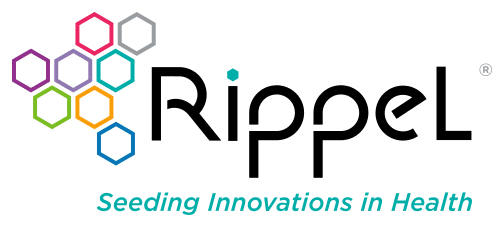A Pennsylvania Health Care System Stewards Equitable Health and Well-Being
When successful businessman and civic leader Leonard Parker Pool wanted to build a better health care system for all citizens of Pennsylvania’s Lehigh Valley in the 1960s, he consulted with experts from across the country. His tenacity and vision led to the creation of today’s Lehigh Valley Health Network (LVHN), encompassing 13 hospital campuses and numerous health service locations, and the recently endowed Leonard Parker Pool Institute for Health (LPPIH) within LVHN, which strives to improve the social determinants of health through cross-sector collaboration.
Now, LVHN and LPPIH leaders are turning to The Rippel Foundation, a new generation of experts, to continue Mr. Pool’s legacy of a hospital system anchored in the health and well-being of its community. Hospital systems and community needs, however, are far more complex than in Mr. Pool’s day.
Synthesizing insights to discover opportunities
LVHN is a long-time partner of Rippel. It was one of 17 philanthropies from across the United States in Rippel’s FORESIGHT initiative co-designing a bold, new future for health. The experience was foundational to its most recent two-phase engagement with Rippel beginning in March 2022.
The charge was to find common ground on how health and well-being are defined among all LVHN stakeholders; understand LVHN’s role as a steward of health and well-being of the community; and determine how to leverage assets to address social drivers/determinants of health. It was an opportunity to deepen alignment among the health care network, its philanthropic entity, and community organizations as shared stewards of the region’s health—a common and complex challenge facing today’s health care systems.
Rippel brought nationwide perspectives and the expertise to gather and synthesize local insights during phase one. Using Rippel's National Landscape Scan and first-hand experience from its Hospital Systems in Transition initiative, the team surfaced effective strategies that regional systems are implementing to bridge gaps between their present state and thriving communities. Interviews with 21 members of LVHN’s senior leadership team captured systemwide viewpoints on the network’s role in addressing the social determinants of health and awareness about the work underway. Their commitment to community and a deep sense of pride in past, current, and potential future work were encouraging signals for the work ahead.
“With significant and ever-changing forces in health care systems, the goal of the work was to better understand how Lehigh Valley Health Network, a large, complex, successful health care system, defines health and well-being of its employees, patients, and community members; understands and is aligned around its role in improving the health and well-being of the community; and leverages its assets to address social drivers or determinants.”
– Anna Creegan, Director of Systems Change, Rippel
From discovery to action
Rippel’s synthesis of the National Landscape Scan and interview findings highlighted several internal and external opportunities to further surface and amplify existing work during phase two. With Rippel’s guidance, LHVN is addressing patient social needs and social determinants of health across the network and deepening work in vulnerable communities, particularly Allentown. Integrating the vital conditions framework is strengthening alignment among LVHN, LPPIH, and community partners around the institute’s four core focus areas—housing, food/nutrition, education, and community well-being (mental and behavioral health)—as work progresses along three work streams:
Amplify Community Health Work. Internally, the team is creating opportunities to introduce concepts, shared language, and tools to help LVHN physicians, clinicians, and leaders see the health and well-being of all Lehigh Valley residents in a more cohesive way and the potential for new community health strategies.
Measure and Track and Progress. Rippel is bringing its enterprise evaluation expertise to help LHVN create methods for measuring and tracking progress of vital conditions in Allentown. The framework provides a method to bridge clinical and community health data and track signs of shared stewardship in action.
Design and Implement a Demonstration Project. Rippel is facilitating a collaborative project involving LVHN and family medicine leaders in Allentown to focus on diabetes. The work is an opportunity to go deep and narrow in the city’s key census tracts and build out a full scope of diabetes-related initiatives and activities across LVHN/Allentown using the vital conditions framework.
Rippel has surfaced the characteristics of exemplar hospital stewards focused on improving community health:
- Approach community health as a strategic imperative and investment in the future, not as a charitable silo to fulfill IRS requirements
- Invest in vital conditions in addition to urgent services
- Mobilize a full range of financial and non-financial assets toward vital conditions
- Collaborate with community partners and residents
LVHN is developing the expertise to use data-informed strategies, authentic community engagement, and cross-sector partnerships as stewards of equitable health and well-being. In partnership with Rippel, leaders are part of a growing movement of hospital stewards committed to unlocking their community’s potential to thrive through investments in community health, and they are leading the evolution of health care in the Lehigh Valley by following in their founder’s footsteps to learn from others in an ever-changing landscape.
